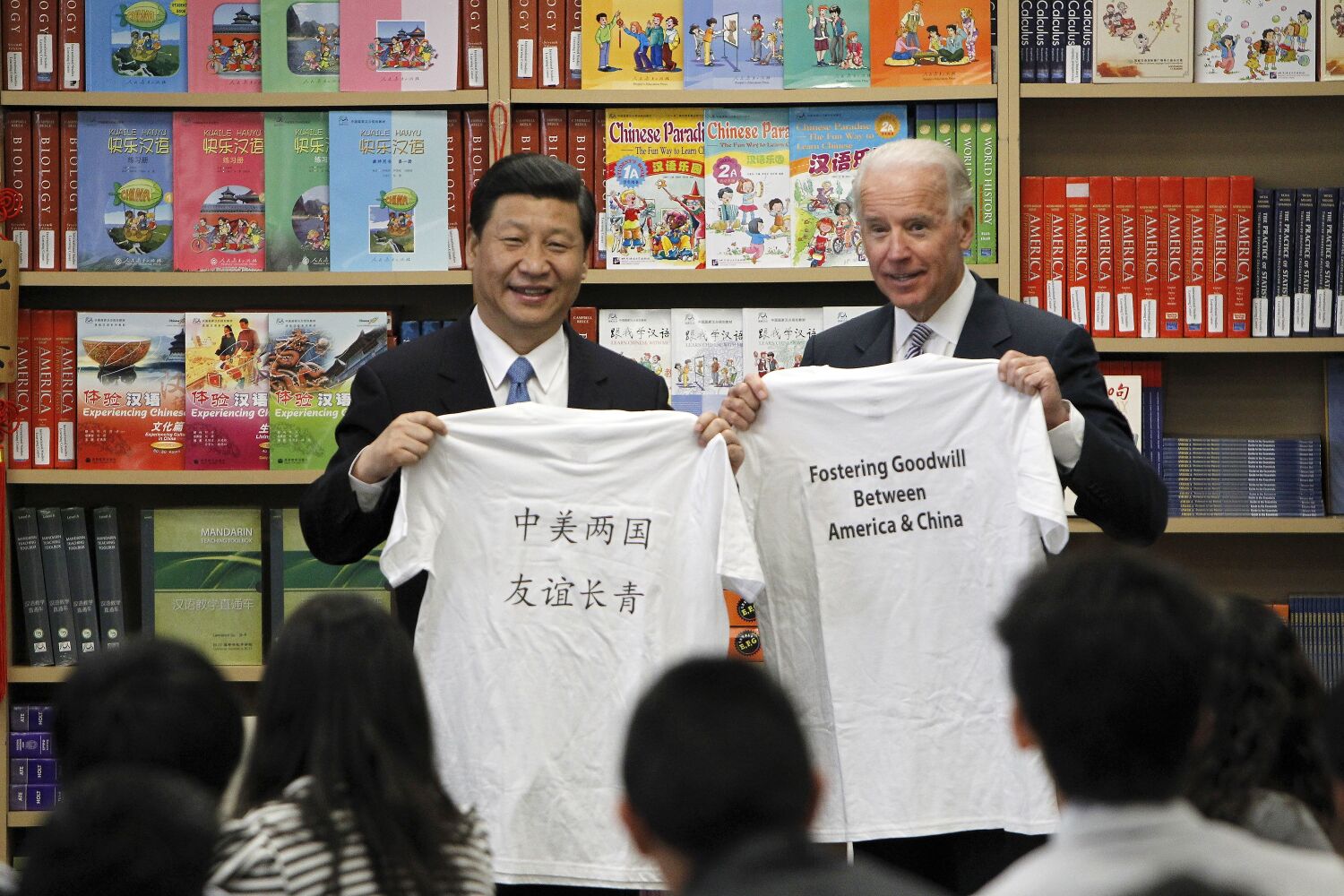President Biden is scheduled to fulfill with Chinese language President Xi Jinping this week on the Indonesian island of Bali, their first in-person summit since Biden arrived within the White Home.
The stakes are at all times excessive at superpower summits, and this one is not any exception. After months of near-collisions over Taiwan, each governments seem to need to decrease the temperature. One other good signal: Earlier this month, Xi publicly admonished his ally Vladimir Putin to cease threatening Ukraine with Russian nuclear weapons.
However different grounds for optimism are few. U.S. officers are fastidiously maintaining expectations low; their important purpose, one aide mentioned final week, is merely “to construct a ground beneath the connection.” Even that modest end result isn’t assured.
“The U.S. facet needs to display that [the two countries] usually are not locked in a downward spiral,” mentioned Evan Medeiros, a former China advisor to President Obama. “I feel either side are going to have the ability to say the proper issues to stabilize the connection, however not one of the underlying points are going to be solved.”
U.S.-China summits as soon as tried to deal with areas the place the 2 sides might cooperate, comparable to local weather change and North Korea. However these desires of collaboration are principally a reminiscence now: As China’s financial and army energy has grown, the 2 international locations have more and more seen one another as threats.
Two particularly tough points stand in the way in which of progress.
One is acquainted — the standoff over Taiwan, the U.S.-backed island that China claims as a part of its nationwide territory. The opposite is newer: A U.S. ban on gross sales of superior know-how to Beijing has touched off a “semiconductor war.”
The US and China have lengthy been at loggerheads over Taiwan, however over the past 12 months, tensions have grown sharper. China has escalated its army incursions within the waters and airspace across the island. Biden has responded by declaring that if Taiwan is attacked, the USA will defend it with army pressure — toughening a U.S. coverage that was as soon as ambiguous.
The standoff might simply flip extra harmful. Taiwan’s subsequent presidential election marketing campaign begins subsequent 12 months, and a few candidates are anticipated to name for a proper declaration of independence — a transfer that China has mentioned would cross an impermissible “crimson line.”
If Republicans take over within the U.S. Home of Representatives as anticipated, they’re prone to push for more durable pro-Taiwan insurance policies, together with elevated army gross sales to the island. Maintaining this precarious standoff from sliding towards battle gained’t be straightforward.
The semiconductor battle is a brand new, extra intense model of an outdated drawback — the U.S. criticism that China steals American know-how and makes use of it to modernize Chinese language army {hardware}.
Final month, after years of largely ineffectual regulation, the Biden administration imposed sweeping new limits on the sale of superior semiconductors to China — a step aimed explicitly at a core element of Xi’s technique for dashing Beijing’s rise as a scientific, financial and army competitor.
China has responded with indignant protests, calling the U.S. export controls the equal of an financial blockade. However it has not retaliated with any equal commerce measures; consultants suspect Xi doesn’t need to take any actions that will threat harming the sputtering Chinese language economic system.
“My guess is that Xi will increase that situation on the summit,” mentioned Bonnie Glaser, a China skilled on the German Marshall Fund, a U.S. suppose tank. “He’ll say that it’s proof that the U.S. is pursuing a technique of containment in opposition to China. … However I don’t suppose there’s any method ahead on it. If something, the administration needs to make use of the identical software in areas past semiconductors.”
U.S. officers say they nonetheless hope to restart talks with China on areas the place the 2 international locations may have the ability to cooperate, like meals safety within the growing world or local weather change.
At a extra primary degree, they hope to revive U.S. concepts for “confidence-building measures” together with a long-stalled proposal for a “sizzling line” communications hyperlink between the U.S. Pacific Command in Hawaii and China’s Jap Command.
However even these modest steps don’t look attainable this week.
“The Chinese language aren’t ,” Glaser mentioned.
“Opening communications channels with China doesn’t actually clear up different issues,” Medeiros added. “It’s unlikely to shift the trajectory [of the relationship], which is towards intensified competitors.”
Within the custom of superpower summits, Biden and Xi likely hope to declare their assembly successful — if solely by the hard-to-measure normal of stabilizing U.S.-China relations.
Even when they do, the 2 international locations nonetheless face much more alternatives for battle than cooperation. The U.S.-China drawback is prone to worsen earlier than it will get higher.






